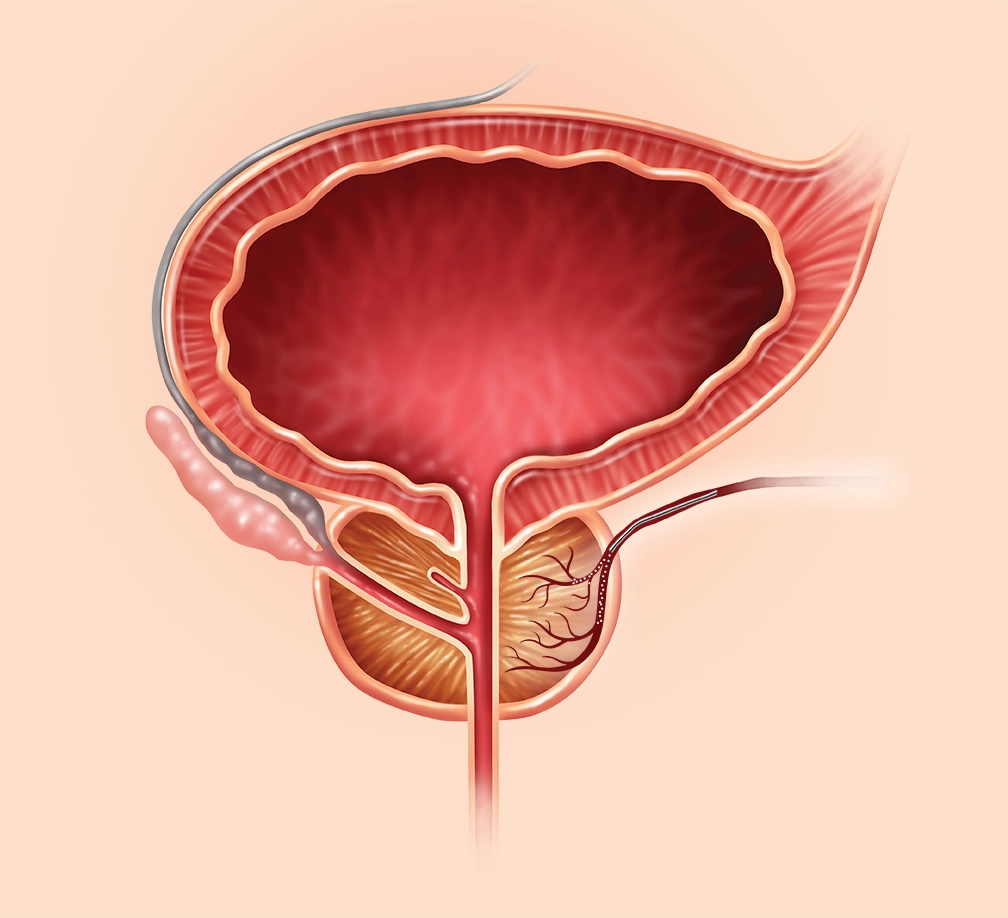
Prostate Artery Embolization: A minimally invasive treatment for men with enlarged prostate (BPH)
FIND OUT IF YOU MAY BE A CANDIDATE BY TAKING A SHORT QUIZ »
Symptoms of enlarged prostate (BPH):
- Frequent or urgent need to urinate (especially at night)
- Weak urine stream
- Difficulty beginning urination or dribbling at the end
- Inability to completely empty the bladder
This condition may ultimately lead to painful urination, incontinence, reduced sex drive and even erectile dysfunction. Men with benign prostatic hyperplasia (BPH) have a new treatment option that is effective and helps them avoid open surgery.
Lakeland Vascular Institute offers a new and minimally invasive treatment option for BPH
At Lakeland Vascular Institute, we can treat BPH with a convenient, outpatient 90-minute procedure called prostate artery embolization (PAE). It requires no more than a small nick in the skin. No general anesthesia. No downtime. Fast results.
Prostate artery embolization is recommended for patients who:
- Have an enlarged prostate (greater than 80 grams)
- Have not been able to control their BPH symptoms with medication
- Have refractory hematuria
- Do not wish to have surgery
- Have chronic kidney disease, are on anticoagulants or smoke cigarettes
CALL US FOR A CONSULTATION
If you have BPH symptoms that are negatively impacting the quality of your life, don’t wait until the symptoms get worse! We invite you to consult with us. Our doctors will work with both you and your doctor to help you understand the extent of your condition and determine if PAE is a treatment option for you.
Call 863.577.0316 today!

PAE treatment is covered by most insurance and may be performed in our convenient outpatient setting. For more information, please call 863.577.0316 or click here where you can download a brochure and information to share with your doctor.
What is an enlarged prostate (BPH)?
BPH is one of the most common health problems, affecting half of all men 51-60 and up to 90% of men older than 80. A normal male prostate gland is the size of a walnut. With BPH, it can grow as large as a tennis ball. The enlarging prostate can put pressure on the urethra, restricting the flow of urine.
Will BPH go away on its own?
Unfortunately, no. Left untreated, BPH can lead to:
- Urinary tract infections (UTIs)
- Bladder damage
- Bladder stones
- Kidney damage (or chronic renal failure)
- Urinary retention (the inability to urinate)
An alternative treatment to prostate surgery
Until recently, men had one treatment option for BPH—a surgery called transurethral resection of the prostate (TURP). During this surgery, a portion of the prostate gland is removed using an electric current or laser.
If you do not wish to have this surgery, or if you are seeking a less invasive way to achieve symptom relief, the doctors at Lakeland Vascular Institute will work with your urologist and care team to help determine the best treatment option for you.
